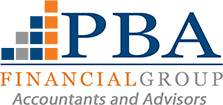Details of tax calculation for $3m threshold a 'mixed blessing
The proposed tax on earnings calculation for balances exceeding $3 million will see some members paying tax on unrealised earnings, says the SMSF Association.

.
Treasury has released a fact sheet explaining the details of how tax on earnings will be calculated in the wake of its decision to revise the treatment of super balances above $3 million.
SMSF Association chief executive Peter Burgess said the good news was that it meant super funds, including SMSFs, would not be required to calculate the earnings attributable to the member’s balance above $3 million.
“The ATO will use a prescribed formula to calculate the proportion of total earnings which will be subject to additional 15 per cent tax,” Mr Burgess said.
“Negative earnings can be carried forward and offset against this tax in future year’s tax liabilities.
However, on the debit side, the ATO will be using an individual’s total super balance to calculate their earnings, which means it will include all notional (unrealised) gains and losses.
“This essentially means some members will be paying tax on unrealised earnings which is highly unusual,” he said.
Mr Burgess said the association’s preferred approach would have been for the ATO to do a calculation of "notional earnings" using a similar approach to the existing excess contributions tax regime.
The fact sheet states that the ATO will use a set formula to calculate the earnings based on the information it receives from each super fund every year.
This formula will calculate the difference between the member’s total super balance for the current and previous financial year and adjust for net contributions (excluding contributions tax paid by the fund on behalf of the member) and withdrawals, it said.
The ATO already uses super fund reporting to calculate the total amount that individuals have in the super system.
Miranda Brownlee
03 March 2023
accountantsdaily.com.au
